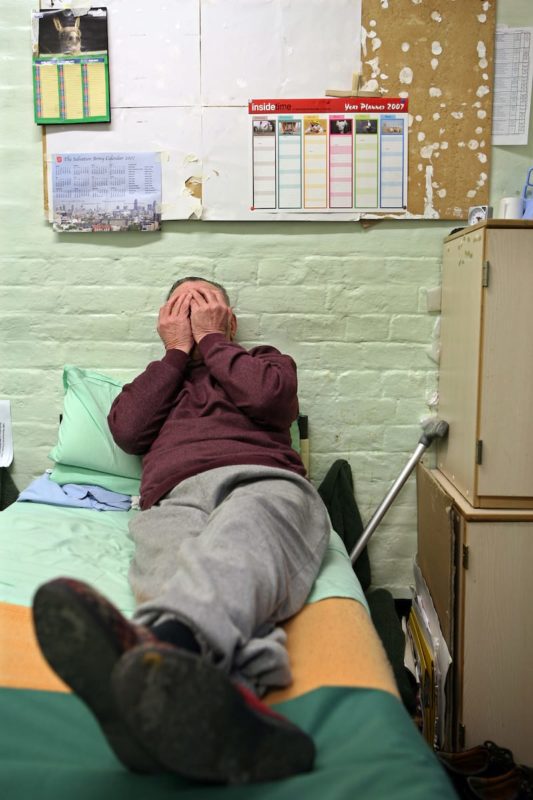No progress
A newly published systematic review looks at the thorny issue of delays in transferring patients from prisons to secure psychiatric hospitals. The review, authored by Christian Sales, Andrew Forrester and John Tully, and published in the Journal of Criminal Behaviour and Mental Health, sets out by saying that transfer to a psychiatric hospital of prisoners who need inpatient treatment for a mental disorder is an important part of prison healthcare and an essential factor in ensuring the principle of equivalence in the treatment of prisoners.
Delays in transferring unwell prisoners to hospital were identified by the 2009 Bradley Report into people with mental health problems or learning disabilities in the criminal justice system. There has been no subsequent systematic review of progress in so doing nor a corresponding appraisal of transfer arrangements in other parts of the world until this review.
The research
The research team found seven full-text articles for the systematic analysis; four of these were from England, one from Scotland, one from New Zealand and one from Ghana. All seven studies relied on retrospective collection of routine data rather than being purpose-designed.
Studies in England and Wales
The researchers found that diagnoses among those transferred did not appear to directly influence the level of security required. One study demonstrated that in high secure transfers, about two-thirds of the sample had a Personality Disorder diagnosis, whereas at other levels of security, the majority had psychosis. Another study identified that the most common (62%) primary diagnosis was of psychosis. The only study of transfers of female prisoners in England and Wales found that psychotic disorders were also the most common (55%) primary diagnosis.
Transfer times
Helpfully, all four studies provided quantitative transfer time data. Transfer times ranged from 14 days to more than 9 months. One East Midlands study reported that only 11% of their transfers were within 14 days while another Greater London study reported a figure of 13% of transfers within 14 days. A separate Greater London study found that 34% of transfers occurred within 3 months.
Only two studies provided transfer data broken down into both the speed of transfer and security level. One study reported that High secure transfers had a mean of 159 days, Medium secure 58 days, Low secure 55 days, psychiatric intensive care units (PICUs) 16 days and other units 68 days. Another study on female prisoners demonstrated that Women’s Enhanced Medium Secure transfers had a mean of 108 days, medium transfers had a mean of 63 days, and PICU had a mean of 29 days and acute MH beds had a mean of 69 days. Two studies also recorded when transfers were never completed: this was 12% in one and 2% in the other.
Reasons for delay
In two studies reporting transfer times based on the level of security, there was an overall pattern of longer delays as the level of hospital security increased. This was likely to be related to both a shortage of secure beds and disagreements about the level of security required. In one of the larger studies, the authors expressed a view that responsibilities that lay with the hospitals—organising a clinical assessment, deciding upon acceptance or rejection and identifying available beds—led to delays. One study estimated that bed availability was the biggest issue, while another reported that disagreement between clinicians negated four transfers, that is, stopped rather than delayed transfer, with an additional five prisoners being released before hospital transfers could be completed.
Interestingly a large Scottish study providing data on all 124 prisoner transfers in 2016 found the average (mean) time for transfers was a much more reasonable 21.5 days.
Conclusions
The researchers identify three main reasons for delayed transfers from hospitals to prisons.
Bed availability
While there was an increase in the number of forensic hospital beds between 1996 and 2006 in England and Wales, there was also a reduction in the number of general psychiatric beds from 260.1 beds per 100,000 in 1984 to 37.6 per 100,000 in 2016. Further, there has been an increase in prisoner numbers from 89.3 per 100,000 to 151.1 per 100,000, an approximately 70% rise, with a likely concomitant rise in numbers with mental disorders. Prisoner transfer to hospital rates have increased, from 0.2 per 100,000 in 1984 to 1.6 per 100,000 in 2016, but it seems likely that overall hospital bed availability is not keeping pace with need.
Regional variation
It should be noted that within the UK, regional factors may also play a role. For instance, in studies looking at transfer times to PICU/IPCU, mean time to transfer varied between 10.5 days in Scotland, 16 days in London and 69 days in the East Midlands. This is in keeping with concerns about geographic differences previously highlighted in a 2014 report and warrants closer examination in future work.
“Suboptimal” treatment in prison
The researchers politely phrase the factor that is broadly accepted that prisons do not provide the optimal therapeutic environment for people with mental disorder, with many practitioners believing that more could be done within the prison setting to optimise initial management. Prison mental health (in-reach) teams have identified recruitment problems, growing caseloads of complex patients and poor implementation of the in-reach model as impediments to delivery of quality care.
This is reflected in another (frankly tragic) emergent trend in the UK which is ‘gate sectioning’—detention under Section 2 or 3 of the Mental Health Act of prisoners immediately on leaving prison after completing their sentence. One prison had seven male prisoners compulsorily detained in this way in 2019/2020, accounting for approximately half of those transferred under Section 47, while another prison had eight prisoners gate-sectioned in 2020. Critics say this demonstrates that beds can be found when necessary and that making people wait until their release date before they are taken for specialist care demonstrates that mental health problems are taken less seriously than physical health problems in prison.
Thanks to Andy Aitchison for kind permission to use the images in this post. You can see Andy’s work here









